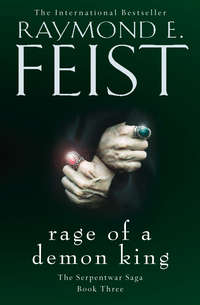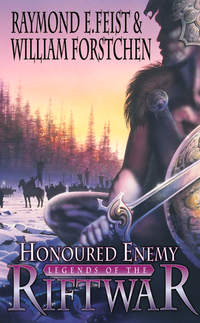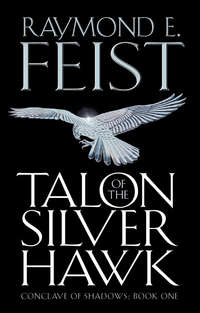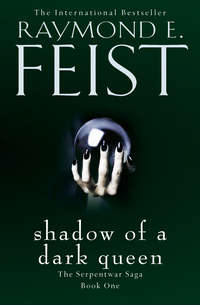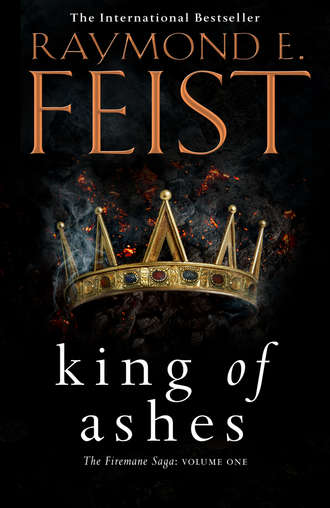
Полная версия
King of Ashes
He hurried towards the door and suddenly found himself falling forward. He rolled, avoiding injury, though he would sport bruises on his shoulder and hip soon, and came to his feet to see Raj scurrying back, his half-mocking, half-defiant smile daring Hatu to react while those around diverted their attention, not wishing to be even remotely associated with a confrontation.
The anger that had been simmering inside Hatu now boiled over. He took one step towards Raj, then felt arms encircle him from behind as Donte lifted and pulled him back.
At the same moment, Hava stepped past Hatu and with wicked speed spun and delivered a punishing wheel kick to the side of Raj’s head before he could react as he tried to stand to face Hatu. Raj flew sideways, slamming against a crate, his eyes rolling up into his head before he slumped to the floor.
Donte held Hatu for a second as Hava turned and with one step had her nose almost to his. ‘Are you stupid?’ She spoke loudly, not caring who overheard. ‘You were just summoned by a master and you’re trying to fight Raj?’
Donte released Hatu, who had ceased struggling. The sudden intervention of his friends had somehow drained Hatu’s rage. Hava leaned over and picked up his bag and handed it to him. ‘Go!’ she commanded, obviously angered by what she saw as her friend’s intransigence in letting Raj goad him.
Hatu looked around and saw that every student in the warehouse was watching them. A few were looking around to see if anyone in authority was present, for their schooling had taught them all that, as unfair as it was, entire groups were often punished for the misdeeds of one. The fact that the crew boss was outside with Master Bodai had some of them settling back with expressions of relief.
He stumbled towards the door and realised he had said nothing to his friends. He looked over his shoulder and saw Hava and Donte watching him. Hatu nodded his head in farewell.
This was not the first time a student had been singled out to accompany a master or a preceptor on a mission. Hatu had travelled with both, but it was the first time he had been ordered to accompany one alone. On such assignments, he usually travelled with a small group of students.
Outside the warehouse, Hilsbek narrowed his gaze at the boy, as if he was about to say something, but before he could speak, Master Bodai turned and said, ‘I know you, don’t I?’
Hatu shrugged. ‘Yes, master, I have seen you before—’
‘Call me “brother”, for I am a holy man and you are now my beggar boy.’
Hatu instantly fell into his role. ‘I have seen you before, brother, when you came to visit Master Facaria. But we have never spoken—’ Bodai held up his hand, indicating Hatu should say nothing more. He nodded at Hilsbek.
Hilsbek wished them a safe journey and then returned to the warehouse. For an instant, Hatu wondered if Raj’s condition would be noticed, but immediately returned his attention to Master Bodai.
Bodai nodded. ‘Then we know each other by reputation.’ He motioned for Hatu to follow. ‘We take ship soon, and will have ample time to go over details, but for now, tell me what you have heard.’
Hatu was so taken aback by the question he paused for a moment and had to step quickly to catch up. Bodai was old enough to have lost some hair, and had what was known as a ‘high forehead’, but what remained of it was streaked white and grey, and hung to his collar. Hatu guessed he was in his sixties, though he walked with a lively step for a man of his age, and had a sense of strength about his movement that marked him as a dangerous opponent despite his advancing years. Experience and core strength might well overcome a younger, stronger enemy.
Hatu said, ‘I know only what other students have said, brother.’ He looked concerned as he struggled to say the right thing. ‘You explain things. To prepare them for … whatever it is they need to do. Some of them like you.’
Bodai smiled slightly, his tanned face creased like wrinkled leather around his blue eyes, broken nose, and jutting chin. ‘Some of them like me?’ he asked. ‘What of the others?’
Hatu hesitated, and Bodai said, ‘They think I talk too much?’
Hatu nodded once.
Bodai halted and laughed. ‘Perhaps I do. But I’d rather bore you to death than be killed because of your ignorance.’
Hatu was surprised that he found the response both amusing and reassuring. He appreciated the master’s mirth, and the man’s attitude appealed to Hatu’s hunger to understand everything. There was no such thing as too much information; his desire to learn lay at the root of his constant frustration and anger.
Bodai paused, narrowing his gaze. ‘This amuses you?’
‘No, brother, it pleases me.’
‘Well, then,’ Bodai responded with a playful slap to the back of Hatu’s head, ‘as it is my mission in life to please you, boy, we have begun well.’
‘Yes, brother.’
‘I shall call you … Venley. How many languages do you speak, Venley?’
‘Eleven,’ said Hatu, ‘but only five fluently.’
‘Name the five.’
‘Our tongue,’ he began.
Bodai frowned as he resumed walking. ‘Of course you do. Don’t waste my time with the obvious. So, you speak four tongues that are not native to you. What are they?’
‘Westernese—’
‘Which dialect?’ interrupted Bodai as they turned a corner and moved into a busy boulevard that led to the docks.
‘Ilcomen.’
‘Good. It won’t take long for you to master the different patois, if needed. Others?’
They crossed a small street and approached the market where Hatu and his companions had spent the day. Hatu said, ‘I speak the trading language of Matasan, as if I were a native of the island of Katalawa.’ Bodai nodded as if this was good. ‘And I also speak Ithraci.’
‘Who taught you Ithraci?’
‘A language preceptor, brother. It was by Master Facaria’s order, he insisted I learn.’ Hatu shrugged. ‘It’s a dead kingdom, so I never understood the point.’
‘Not quite dead,’ muttered Bodai. ‘And the last?’
‘Sandurani, as if I were born there.’
‘Good, because Sandura is where we need to be.’
Hatu thought on that as they crossed the market and headed towards the docks. ‘So we’re a priest and beggar boy of the One?’
‘Not quite,’ said Bodai. ‘I’m a monk, not a priest. I’ll explain the rest of it when we reach the city of Sandura’s main harbour.’
The expression on Hatu’s face revealed his impatience. He wanted to understand now, not later.
‘You will be busy until then,’ said Bodai as they reached the docks and moved towards a ship readying for departure.
Hatu let out a sigh of resignation; he was to be a sailor again. It was his third assignment aboard a ship, and although he didn’t hate the work, he could have named a dozen things he’d rather have done with his time. He knew it was likely he’d draw the night watch, for the students were often kept apart from most of the crew.
Seeing that Hatu understood, Bodai smiled. ‘Come then, let us be off,’ he said as they reached the gangplank of the ship. It was a wide-bodied trading vessel, a wallower in rough seas, Hatu guessed. He hoped he didn’t have to experience that high in the rigging at night. Resigned to the coming trials, he followed Brother Bodai up the gangplank.
• CHAPTER TWO •
A Task Completed
The smithy was windowless. It was entered via a long hall that followed an outside wall and turned a corner before emptying into the forge through a curtain. On the opposite wall, massive doors covered with hardened leather sealed out light; the glow of the furnace was the only illumination.
Horseshoes, bridles, stirrup irons, plough blades: all manner of common tools could be fashioned as the sun streamed through the massive doors, but the forging of swords was always performed in the dark, for the smith had to see the truth hidden within the colour of the metal.
Journeyman Declan had been given responsibility for overseeing the forge for the first time, and had been smelting iron into steel for three days. He knelt to examine the slag at the bottom of the furnace before returning to the huge bellows that hung from the ceiling. Declan and Jusan, the apprentice who at present napped in the corner, had been tending the bellows day and night. Declan pumped them slowly, watching the glowing embers rise on hot air into the hood above the fire, then looked back at the slag to study the colours of the flaming metal.
The journeyman smith stared into the furnace, looking for unwelcome changes in the hue. The red, orange, and white flames spoke to Declan, telling him if the iron was becoming the steel he desired. He added layer upon layer of iron sand and charcoal, paying constant attention to the heat, and within the glowing heart of the slag, something miraculous formed: jewel steel.
It was the steel from which the greatest swords were fashioned, and a material that few men could produce.
Intelligent and talented, Declan had a rare skill. He was a handsome youth nearing his twenty-second birthday but had achieved the rank of journeyman at eighteen, five years sooner than most. And he was now attempting his masterpiece a dozen years earlier than was normal for any master smith. It was unheard of for one so young, but Declan’s master, Edvalt Tasman, felt he was ready for the challenge.
The young man’s lanky frame hid the strength usually apparent in the bull shoulders and barrel chests of most smiths. Declan’s exceptional strength showed only in his forearms, wrists, and hands, which were more muscular than his otherwise slender build. He had green eyes and fair eyebrows, and his head was covered with a thick thatch of red-blond hair.
Jusan, a well-built youth of fifteen years, snored loudly in the corner. Declan turned to him and called, ‘Hey!’
The boy awoke instantly and blinked for a moment before he quickly came to stand behind the journeyman smith. Peering over Declan’s shoulder, Jusan said, ‘Is it time?’
‘Just watch and learn,’ said Declan.
Jusan watched closely as Declan used a long iron hook to pull the clay out of the furnace. Waist high and six feet on each side, the furnace had taken a day and a half to construct, and flaming coals spilled out as Declan pulled the slag out, inspected it, and put it back in the coals. ‘Just a moment longer …’ Declan muttered.
Jusan smiled at his teacher and nodded. He had a wide face and large brown eyes, and often reminded Declan of an owl as the smoke made him blink furiously. The boy was also starting to grow out of his gangly stage and his strength was approaching that of a man. He watched with interest as the mass of steel collected at the base of the furnace was revealed. Declan silently studied the pile of cooling steel, then turned to Jusan with a smile. Declan nodded once. ‘Go fetch Edvalt.’
The master smith arrived shortly after and knelt to inspect the smouldering blue-grey mass. He leaned forward until the heat threatened to singe his eyebrows and then sat back on his heels wearing a satisfied expression. A single nod indicated to Declan that he had passed the first stage of his goal: creating the steel.
Declan used large tongs to pull the slag from the bottom of the furnace and hurried to the larger of the two anvils in the smithy. While the steel was cooling, he quickly hammered it into an almost perfect cube, then moved it to the anvil where the work would be finished.
Jusan grabbed a bucket and poured water over it. Steam rolled off the hot metal as Declan retrieved a length of heavy paper and slid it under the metal, quickly wrapping the slag. For a moment the three smiths halted and prayed silently to the ancient god of the forge, Hagama.
When Edvalt’s father was a boy, smiths had performed a ritual with the prayer, but the One God’s priests had named many smiths heretics and burned them since then, and now the words were never uttered aloud.
Jusan handed Declan a pot of clay, and he applied a thick layer to all sides of the steel cube while Edvalt turned it. When it had cooled enough for the clay to be sticky but not hardened, Jusan passed the young journeyman a large jar of ashes, which Declan layered over the cube as Edvalt continued to rotate it. The ashes, clay, and paper would keep the air from the metal as the next step commenced, for the balance between air, heat, and carbon dust was vital for the final step in fashioning the steel.
Declan nodded to Jusan. ‘Bellows,’ he said quietly.
Jusan stepped away while the other two smiths picked up their hammers. Edvalt handed the tongs to Declan while Jusan pumped the bellows to encourage the fire back to its hottest point.
Declan thrust the block into the flames and watched as the paper caught and the clay quickly hardened around the steel. He waited for the perfect moment, then returned the glowing mass to the anvil.
The steel they produced was called ‘jewel steel’, or ‘precious steel’, in the secret language of the smiths. It was a mixture of iron sand and carbon dust that produced a steel of remarkable strength and durability. This part of the process was not a secret – any competent smith could create respectable steel – but the forging of jewel steel required an artistry that few smiths possessed. Edvalt was one of those few, and Declan was determined to become his equal.
‘Jusan, tongs,’ Declan instructed.
Jusan hurried to take the tongs from Declan, who glanced at Edvalt and then brought his hammer down on the cube, causing steel, clay, and paper to erupt in a burst of brilliant sparks. Declan slammed his hammer with the precise tempo of a bass drummer as Jusan deftly turned the long ash-covered metal bar with the tongs. Declan alternated blows in perfect counterpoint: crash, turn, crash, turn; the timing was critical, for this was steel for a sword of rare quality, worth the price of a hundred lesser weapons.
Edvalt watched Declan’s every move. This was the sixth time the young journeyman had participated in the creation of such a weapon, but the first time Edvalt had given Declan responsibility for every step. From judging materials to the final polish, Declan alone would determine the success or failure of his first jewel-steel sword. If successful, it would be his masterpiece, and the weapon that would elevate him from the rank of journeyman to the rank of master smith. If he made one mistake, the forging would begin again from the very start.
‘Good,’ muttered Edvalt, the only encouragement he would give Declan in his decision-making. Baron Bartholomy, the future owner of this blade, had given Edvalt ample time to fashion the weapon, and if Declan made any misstep, the old smith had enough time to fashion another.
Edvalt and Declan shared a bond closer than that of father and son. Fathers and their sons often disagreed, but masters and journeymen had one purpose: to ensure that the knowledge never died. Declan was the son Edvalt had never had; his daughter was now grown and married, and except for a stillborn son, there had been no other offspring.
They pounded and folded the steel, until Declan indicated with a nod that Jusan needed to insert the lengthened blank into the furnace. With one long stride, the young apprentice thrust the blade deep into the coals and began to turn it.
Declan watched every glimmer and spark on the hot metal, then put his hand on Jusan’s shoulder. ‘Now,’ he whispered, as if speaking loudly might imperil the process.
The young apprentice returned the blank to the anvil. Again their hammers landed powerful blows, and the heavy lump of red-hot metal slowly lengthened into a long flat blank of steel.
Declan said, ‘Tongs,’ and Jusan gave him the long handles.
As Edvalt took a step back to watch, Declan flipped the steel over at an angle and struck hard, then he folded the still-glowing metal over on itself, beating the oblong into a square. Edvalt could fold steel in half the time, but Declan’s speed would come with practice. All that mattered now was the quality of the steel.
This was crucial in the creation of the great blades. Declan would double this steel a dozen times; hours of deft hammering and heating lay ahead of him, but with each fold the process continued until hundreds of layers of metal would be created. When he was finished, this blade would hold at least five thousand, each strengthening the sword.
When Declan was satisfied with the square, he plunged it back into the forge, and Jusan pulled down the remaining clay walls of the steel furnace. No one outside the smithy would witness the manner of this sword’s construction, from how the clay was moulded into the furnace, every piece crushed to dust, to preparing the coal bed and stoking the ashes, and how the bellows would be repositioned above the open forge when they were finally finished: the special steel required for the commission was one of the most closely guarded secrets in all of Garn. Even Jusan was allowed to see only part of the process; most of the finishing work had been done by Edvalt alone or with Declan as he mastered the craft.
Jusan would be Edvalt’s last apprentice and Declan’s first, and one day he too would move on and establish his own forge somewhere. Good smiths were always in demand, and often among the most important commoners in the world, particularly those who forged weapons for the barons. Smiths and millers could also rise in position, accruing wealth enough to challenge the barons. They might never command armies, or live in castles, but they could live a life of decadence only dreamed of by other commoners.
Declan was driven by two desires: to forge his masterpiece and to make no mistake that would reflect badly on his master. He was an orphaned child, the son of a murdered tavern wench and a nameless father, who had been taken in by Edvalt and his wife, Mila. His master was as close to a father as Declan would ever know. The smith was a taciturn man who rarely showed emotion, but he had always tempered his stern nature with kindness, and Declan had a fierce desire to please him.
The young journeyman pulled the blade close to his face for the briefest instant, a habit he had learned from Edvalt as a means of testing the metal’s readiness for the next step. Declan judged the combination of colours in the metal and the level of heat rising from the steel. The young smith pushed the blade back into the coals.
Declan nodded, and Edvalt looked at Jusan and said, ‘You did well, too. Depart. Eat and rest.’
The younger apprentice needed no urging as he was hungry and tired, and he exited through the smaller door to the hall outside. Jusan knew that his lesson was over; the secrets now passed between master and journeyman might be his to learn one day, but it was not to be today.
Declan was to be shown the final step for the first time: the secret key to mastering the art of creating the blade.
‘Bellows?’ asked Declan.
Edvalt nodded agreement and put down his hammer to seize the massive arms of the bellows.
Suspended by thick chains, each wooden arm was the length of a cart trace and as thick as a man’s forearm, the large bellows bag fashioned from toughened leather. The old smith threw his considerable strength into pulling the arms apart, and the intake of air was like a giant’s gasp; then he pushed hard, sending a fountain of embers upwards into the copper and iron hood above the forge that kept them from igniting thatched roofs in the village.
Declan studied the hue of the blank and found the perfect spot within the embers. Then, without a word, Edvalt released the bellows, stooped to pick up a shuttle of coals, and deftly sprinkled them at the edge of the fire. Declan put down the hammer, picked up an iron, and, as Edvalt watched, began placing the new coals into the furnace, selecting spots where the new fuel would not lower the heat under the metal.
Then within seconds, Declan moved to the bellows. As he worked, the heat washed over master and journeyman in waves, but they ignored the discomfort, their attention focused completely. ‘Perfect,’ Edvalt muttered.
Years of patient training only manifested when the steel reached the proper temperature. Declan suddenly dropped the bellows handles and ducked underneath them. Seizing a pair of heavy tongs, he grabbed the near-flaming metal as Edvalt released the coal shuttle and reached for his heavy hammer. Declan grabbed another hammer and, without any instruction, struck down. As soon as his hammer cleared the steel, Edvalt’s smashed into the now-malleable metal.
Perspiration poured from their brows, backs, and arms, yet the men continued to hammer in a rhythmic pattern born only from years of working together; the steel flattened out. ‘Now we make magic,’ said Edvalt in the single most poetic statement Declan had ever heard from the smith. He had assisted Edvalt before in making this sort of rare blade, but until now had never been permitted to witness the final step.
Edvalt went to a tool chest and lifted out a modest wooden box. Declan had noticed it on the first day of his apprenticeship and had often wondered about its contents, but he had never voiced that curiosity.
Edvalt opened the box and inside it Declan saw fine grains of something that looked like salt, glowing red-orange in the forge’s light.
‘Sand from the Burning Lands,’ said the master smith. ‘You need to learn to do this alone, so come and stand where I am. This is the last secret of our craft that I can teach you.’
Declan moved to the other side of the forge, the tongs and hammer ready. ‘Flatten,’ Edvalt commanded, and Declan started to beat the red-hot metal, making it thinner on every blow.
‘Be ready,’ said the old smith as he placed the box next to Declan. ‘When I say now, you must do three things very quickly: first, judge the colour of the steel. Then take a handful of sand from this box and sprinkle it down the very centre of the blade. When the sand sparkles like stars in the heavens, you must then fold the steel one last time.’
Perspiration flowed in sheets down Declan’s face and chest, from both the heat and the concentration. He studied the metal, moving the blade around as he struck, then just as he judged it ready to fold, he heard Edvalt say, ‘Now!’
Declan put his hammer down and pulled the blade towards him as he grabbed a handful of fine sand; he felt the weight of it, measuring the amount he needed, and sprinkled the sand onto the flaming metal.
Smoke and flame erupted. Sand sparkled and flared into tiny bright pinpoints of white, and some stuck to the surface. ‘More along the right edge!’ instructed Edvalt at exactly the same moment Declan decided he needed more on that side. The young journeyman felt exhilarated: he was creating the soul of the sword.
‘Now! Edges only!’ said Edvalt, and suddenly Declan understood the secret: the sand hardened the steel with each blow. The slightly softer, more resilient centre prevented the sword from shattering, while the extra sand at the edge created a harder steel that could be honed razor sharp.
He knew!
Without hesitation or a second thought, Declan started to beat the steel until it began to look like the weapon the baron had commissioned: a stout sword of moderate length, long enough to reach over a horse’s neck, to use against men on foot without being a hindrance in the saddle. When he reached the end of the blade, he took it back to the furnace and inserted the tip into the coals. Declan tried not to show any excitement as he neared the end of his task, but he was almost light-headed with the anticipation of reaching this milestone. He forced himself to calm. When the colour deepened in the butt end of the blade, he pulled it from the coals, returned to the anvil, and deftly flipped the blade around so he could shape the blank, where the tongs had gripped, into a proper tang. Quickly he hammered the steel into submission.
Then it was done.
Declan looked at Edvalt. The smith held a bucket of water ready. Most smiths would plunge the rough blade straight into the water, quenching the heat and setting the steel’s hardness fast, but Edvalt preferred to hold his blade out as his apprentice poured water from the large wooden bucket across the metal. He claimed it was easier for him to judge the cooling process, to watch the colour of the blade change as the steam exploded on contact. Declan didn’t care what other smiths did; he knew the quality of his master’s work and was determined to be his equal.


